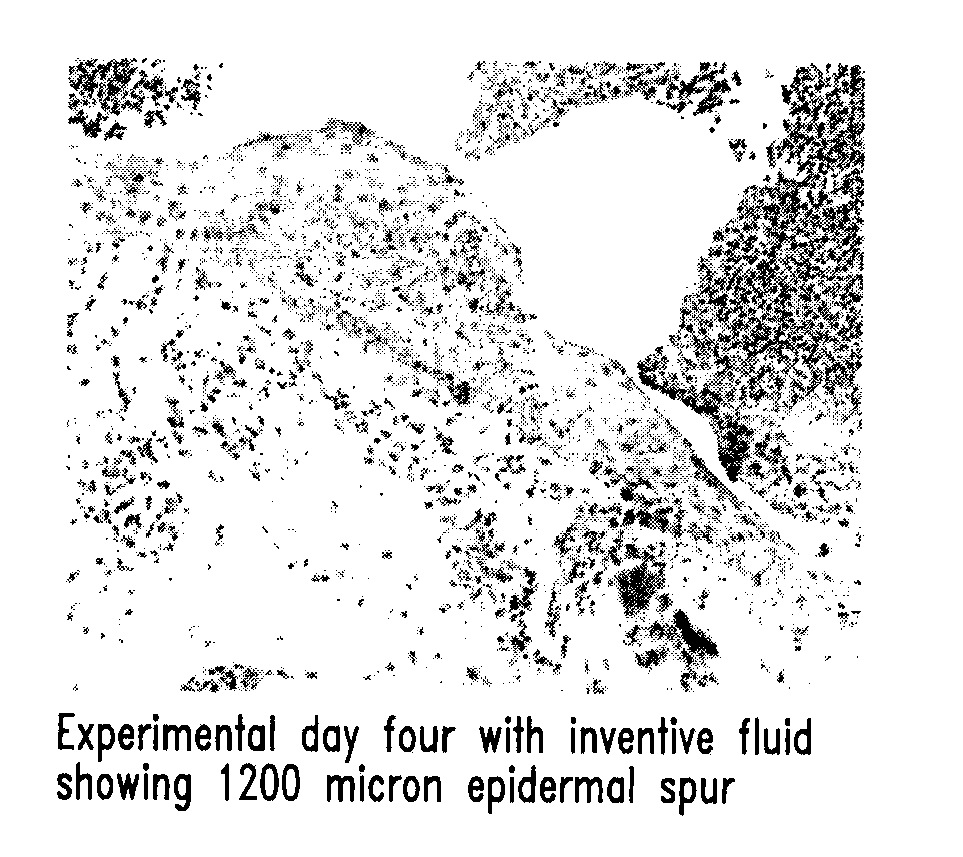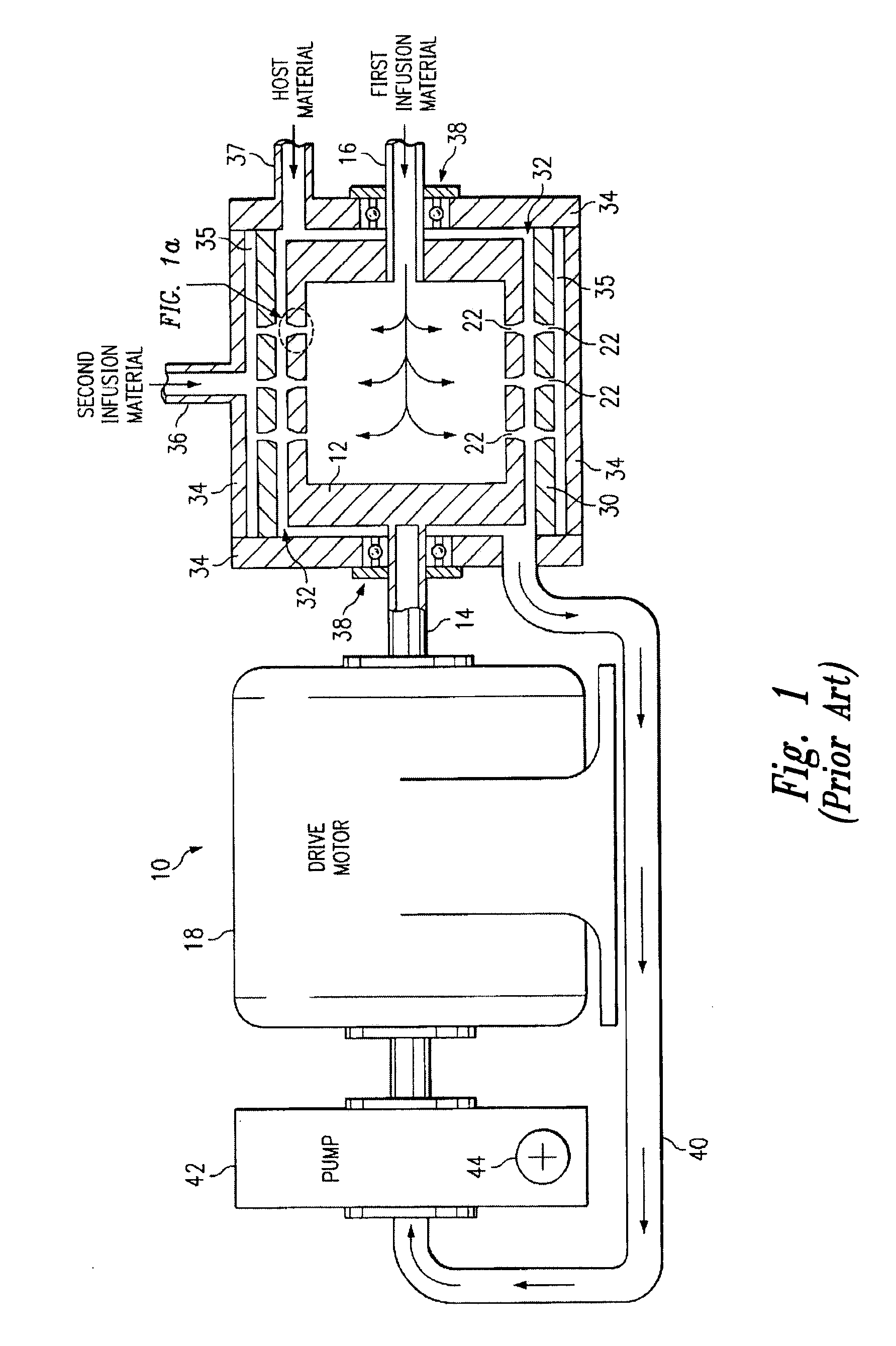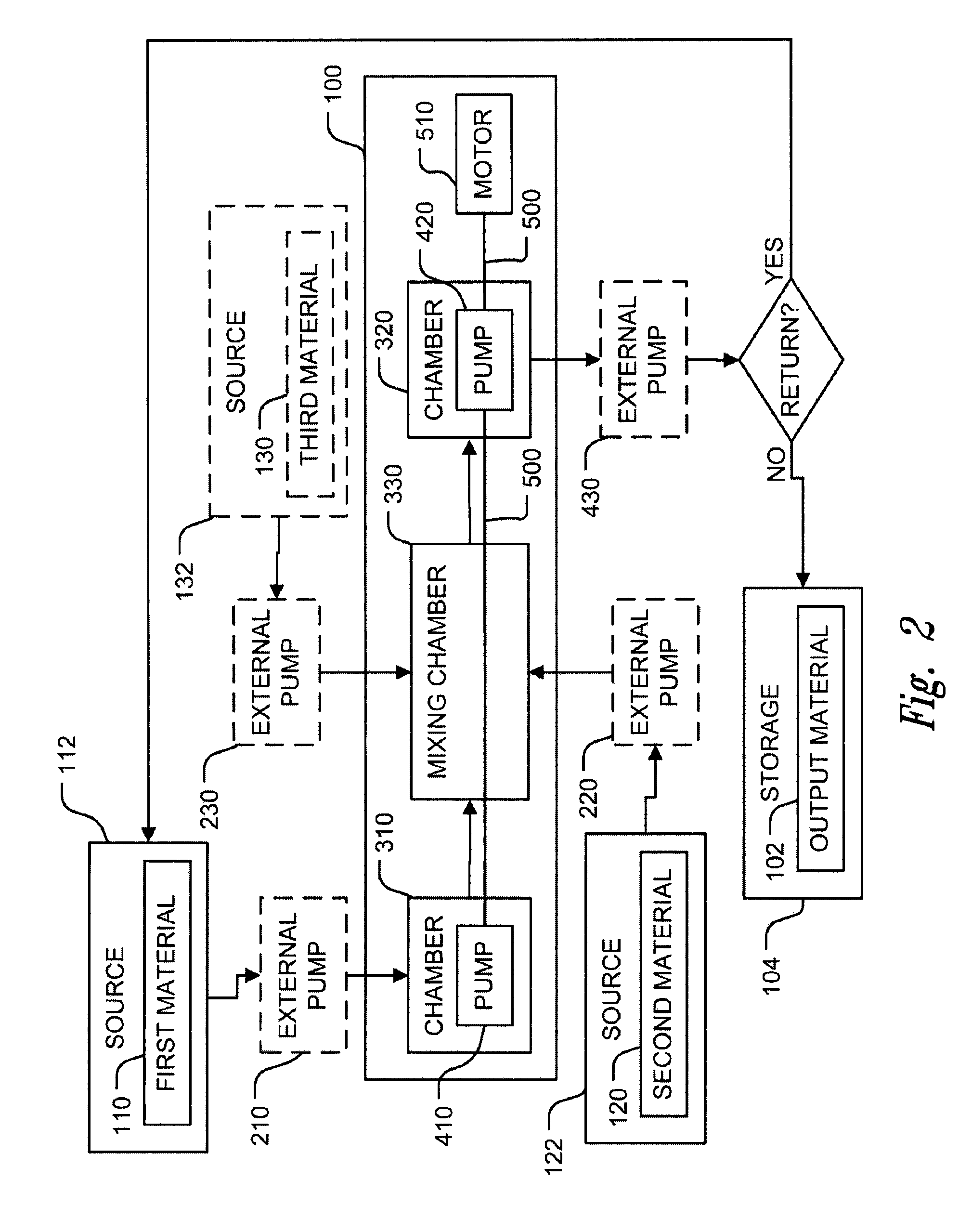Methods of therapeutic treatment of eyes and other human tissues using an oxygen-enriched solution
a technology of oxygen-enriched solution and eye, applied in the direction of antibacterial agents, instruments, immunological disorders, etc., can solve the problems of unsatisfactory and unnecessary friction, portion of the host material to become trapped in eddy, and additional undesirable and unnecessary friction
- Summary
- Abstract
- Description
- Claims
- Application Information
AI Technical Summary
Benefits of technology
Problems solved by technology
Method used
Image
Examples
example 1
Decayed Oxygen Content in Balanced Salt Solution
[0307]FIG. 33 illustrates the dissolved oxygen retention of a 500 ml Braun balanced salt solution that originally had a dissolved oxygen level of 5 ppm. Following enrichment of the solution at standard temperature and pressure with the diffuser of the present invention, the dissolved oxygen level was approximately 41 ppm. The solution was kept in an amber glass bottle. After an hour, the dissolved oxygen level was 40 ppm; 36 ppm after two hours; 34 ppm after three hours; and slightly more than 30 ppm after approximately four and a half hours. The final measurement was taken shortly before six hours, at which point the dissolved oxygen level was approximately 28 ppm.
example 2
Microbubble Size
[0308]Experiments were performed with a gas-enriched fluid by using the diffuser of the present invention in order to determine a gas microbubble size limit. The microbubble size limit was established by passing the gas-enriched fluid through 0.22 and 0.1 micron filters. In performing these tests, a volume of fluid passed through the diffuser of the present invention and generated a gas-enriched fluid. Sixty milliliters of this fluid was drained into a 60 ml syringe. The dissolved oxygen rate of the fluid within the syringe was then measured using an Orion 862a dissolved oxygen meter. The fluid within the syringe was injected through a 0.22 micron Millipore Millex GP50 filter and into a 50 ml beaker. The dissolved oxygen rate of the material in the 50 ml beaker was then measured. The experiment was performed three times to achieve the results illustrated in Table 3 below.
TABLE 3DO AFTER 0.22DO IN SYRINGEMICRON FILTER42.1 ppm39.7 ppm43.4 ppm42.0 ppm43.5 ppm39.5 ppm
[03...
example 3
Sparging Effects
[0311]FIGS. 34 and 35 illustrate the sparging affects of the diffuser of the present invention on a fluid passing therethrough. FIG. 34 illustrates the sparging of oxygen-enriched water in an 8 gallon tank at standard temperature and pressure. As indicated, initially the oxygen-enriched water had a dissolved oxygen level of approximately 42 ppm. After 2 minutes of running through the diffuser, the nitrogen had sparged the oxygen-enriched water such that the dissolved oxygen level was then slightly more than 20 ppm. At 6 minutes, the dissolved oxygen level was approximately 6 ppm. The dissolved oxygen level of the oxygen-enriched water reached a minimum value slightly greater than zero (0) at approximately 14 minutes after the beginning of the process. These figures illustrate the manner in which nitrogen may be diffused into water to sparge the oxygen from the water. However, any gas could be used within any fluid to sparge one gas from the other and diffuse the othe...
PUM
| Property | Measurement | Unit |
|---|---|---|
| dwell time | aaaaa | aaaaa |
| dwell time | aaaaa | aaaaa |
| temperature | aaaaa | aaaaa |
Abstract
Description
Claims
Application Information
 Login to View More
Login to View More - R&D
- Intellectual Property
- Life Sciences
- Materials
- Tech Scout
- Unparalleled Data Quality
- Higher Quality Content
- 60% Fewer Hallucinations
Browse by: Latest US Patents, China's latest patents, Technical Efficacy Thesaurus, Application Domain, Technology Topic, Popular Technical Reports.
© 2025 PatSnap. All rights reserved.Legal|Privacy policy|Modern Slavery Act Transparency Statement|Sitemap|About US| Contact US: help@patsnap.com



